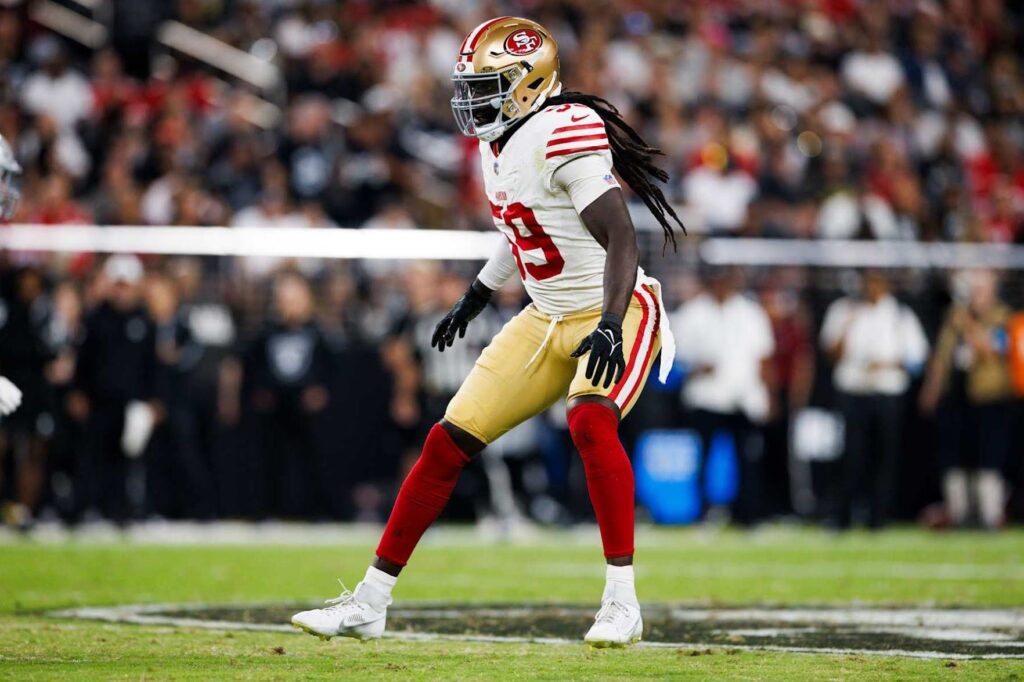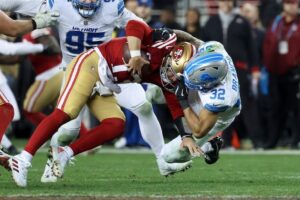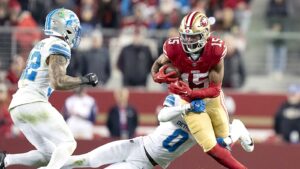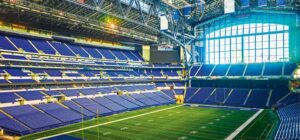
The San Francisco 49ers have suspended linebacker De’Vondre Campbell for three games following his refusal to play in the team’s 12-6 loss to the Los Angeles Rams. General manager John Lynch announced the suspension, citing “conduct detrimental to the team.” The 31-year-old linebacker will likely not return to the team, as the 49ers have just three regular-season games left. His suspension effectively ends his season with the team.
Following the Rams defeat, head coach Kyle Shanahan stated that the 49ers would be moving on from Campbell and were finalizing the details of how to proceed. Reports indicated that the team had already started removing his belongings from his locker. Campbell’s refusal to participate in the game drew swift condemnation from both the coaching staff and his teammates, which likely played a role in the severity of the suspension.
In comparison to a similar situation with the Baltimore Ravens, who suspended wide receiver Diontae Johnson for one game for conduct issues, Campbell’s three-game ban seems particularly harsh. The difference in the punishment may stem from the internal dynamics and reactions to each player’s actions. While Johnson’s teammates expressed support for his return, Campbell faced immediate backlash from within the 49ers organization.
The 49ers’ handling of Campbell’s case contrasts with other teams, as head coach Shanahan and general manager Lynch were notably outspoken in their criticism of Campbell. The suspension will also cost Campbell financially, with the team able to reclaim up to $167,500 from his $3.35 million signing bonus due to the suspension. Additionally, he will forfeit his salary for the games he is banned from playing.
The public response to Campbell’s actions has been largely negative. ESPN’s Ryan Clark suggested that Campbell should never play in the NFL again, further tarnishing his reputation. The punishment seems to reflect the severity of the situation both inside and outside the 49ers’ locker room, where Campbell’s decision was seen as a direct affront to the team’s competitive efforts.
This incident has not only affected Campbell’s standing with the 49ers but also his future prospects in the NFL. The suspension and the fallout from his refusal to play may significantly impact his career, with potential teams likely to view him with more caution moving forward. Given his age and the nature of the suspension, it’s unclear if he’ll have an opportunity to continue playing at a high level.
As the 49ers approach the end of the season, the team will look to move forward without Campbell, who may have played his final game in San Francisco. His suspension underscores the importance of team cohesion and accountability, particularly when a player’s individual actions undermine the collective goal.







